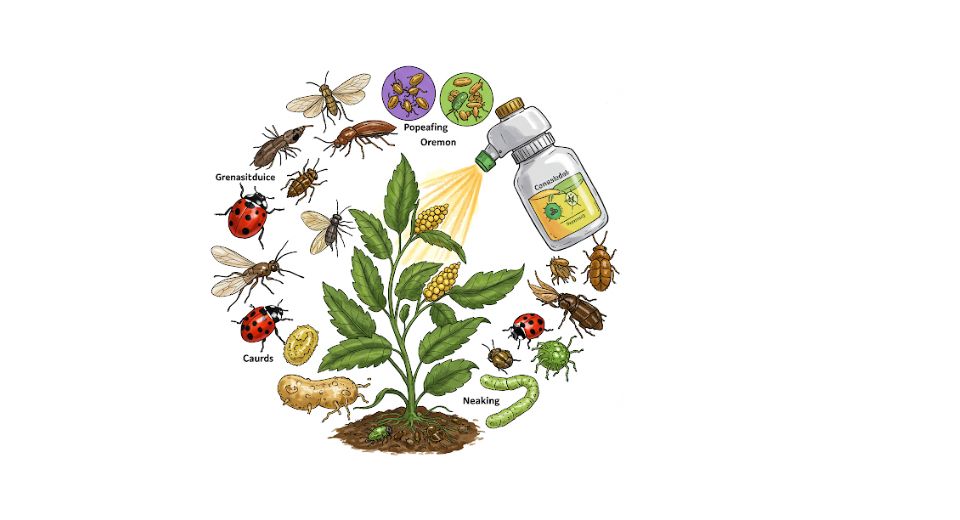
Mar 19, 2025

Metastat Insight has recently issued a report on changes in the global biopesticide market toward sustainable agricultural practices. Biopesticides-from organisms such as bacteria, fungi, or vegetation-serve as an environmentally friendly alternative to synthetic chemicals used conventionally for pest management. Transitioning to biopesticides reflects a growing concern for the environment and human health, whereby a deep questioning of conventional farming techniques has begun.
Global Biopesticide market is estimated to reach $11,205.3 million in 2025 with a CAGR of 16.1% from 2025 to 2032.
Thus, organic produce purchases have been driven by high consumer demand. In this increasingly health-conscious climate, consumers have developed a strong preference for food free of synthetic chemical residues. These changes in consumer behavior have subsequently prompted farmers to adopt biopesticides to better match their practices with market expectations and regulations. Due to these factors, the global biopesticide market has seen accelerated growth, with projections indicating that the growth will continue in the upcoming years.
Regulatory changes developed around the world are also fostering the use of biopesticides. Environmental and public health arguments have generated strict policies against certain harmful chemical pesticides. These regulations thereby stimulate the creation and uptake of biopesticides, whereby innovation is encouraged within the agricultural sector. The European Union's Sustainable Use Directive, for example, aims to reduce the use of chemical pesticides and in doing so can create a more conducive environment for the use of biopesticides in pest management.
The biopesticide industry has also benefitted due to technological advances. Various new and effective biopesticide formulations have been developed through research and development programs. These new developments promise the efficacy of biopesticides as serious alternatives to normal pesticides. Furthermore, with improved formulations, limitations, such as limited shelf life and susceptibility to environmental conditions, would have been overcome, thereby attracting farmers to use such products.
The agricultural sector's embrace of adoption systems for integrated pest management (IPM) has fostered the rise of biopesticides. IPM adopts a multiple-control-method avatar to pest control, in which biological means and other control agents are considered relevant, including mechanical, cultural, and chemical means, with a heavy emphasis on sustainable management of populations. Biopesticides cater extremely well within IPM programs as they target pest control, limiting adverse impact on non-target organisms and the environment. This complete approach to pest management highlights sustainable practices in modern agriculture.
Countries in Europe are now leading in biopesticide use, mainly due to strong regulations and an established organic farming environment. The entire region is therefore supportive of the establishment and use of biopesticideson the basis of environmental sustainability. In Asia-Pacific, however, biopesticide use is being facilitated by the increase in agricultural activities and steadily rising awareness regarding sustainable farming practices. This worldwide trend indicates that benefits associated with biopesticides are now universally acknowledged.
There are, however, certain hindrances that prevent a handful of biopesticides from going far afield in acceptance. Limited awareness on the part of farmers, relatively expensive production, and a shorter shelf life as compared to chemical pesticides are some challenges. Research and development efforts are being carried out actively to counter these setbacks so that biopesticides can be made easier and cheaper for farmers. Enhancement through awareness programs and government promotions would also go a long way in extending the benefits of biopesticides to the farmers' community.
The competitive environment of the biopesticide market is populated by both conventional agrochemical companies and many start-up companies. The larger established companies are beginning to diversify their product offerings to include biopesticides as these sustainable solutions gain traction in the market. In parallel, a new wave of interesting start-ups is launching innovative products that might overturn some of the traditional pest management approaches. This unique interplay between well-established companies and newcomers promotes an arena of competition and collaboration for advancing the industry toward sustainability.
The global biopesticide market is thus experiencing the greatest transformational drive arising from consumer preference, regulatory policies, technological developments, and sustainable agricultural practices. These integrative factors are attributed to the bulk growth of the biopesticide industry, as reported by Metastat Insight. The perpetual talk on environmental conservation and human health will be kept alive by the increased use of biopesticides that will spur the adoption of biopesticides today and tomorrow in agriculture.
Drop us an email at:
Call us on:
+1 214 613 5758
+91 73850 57479